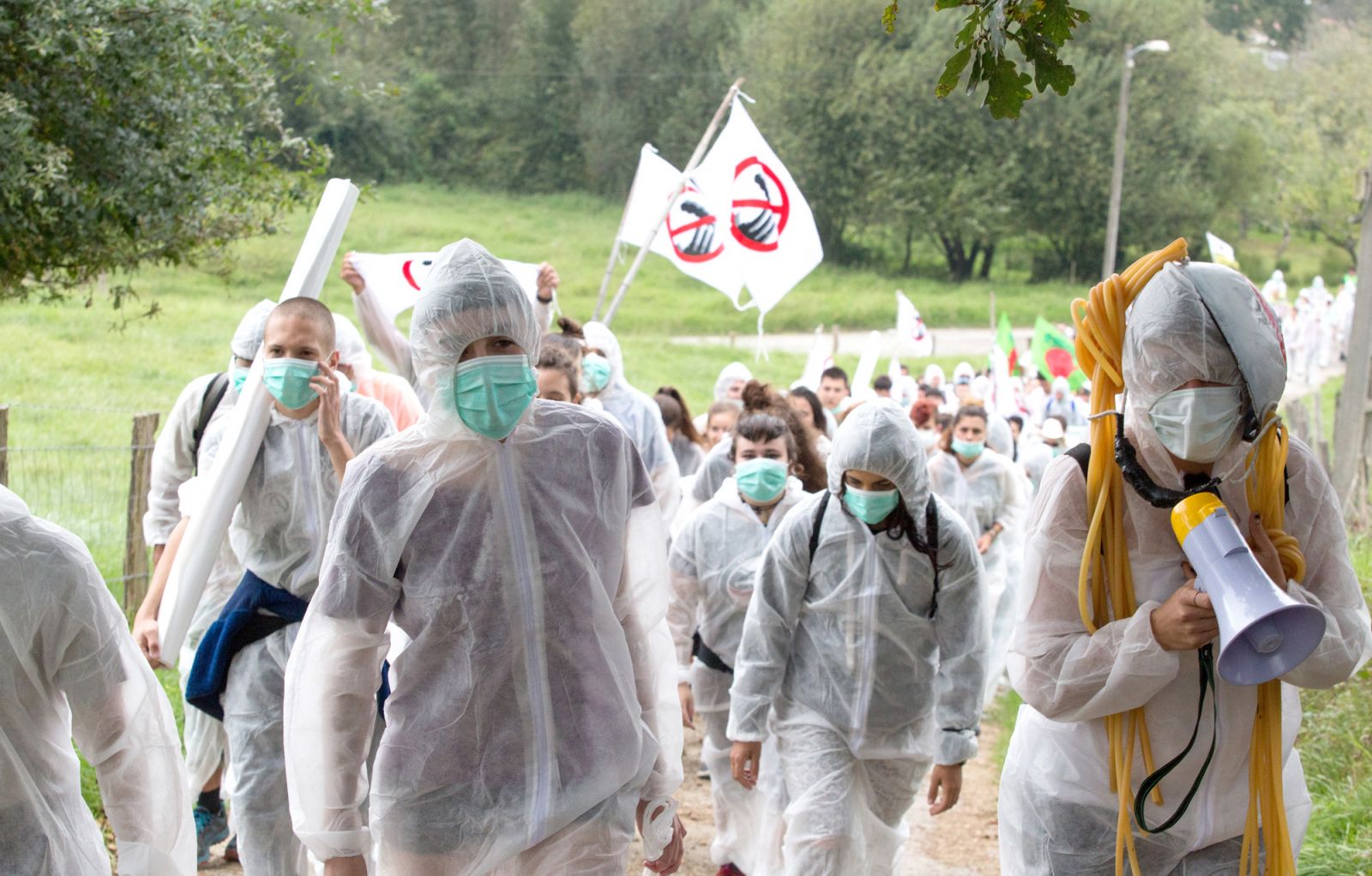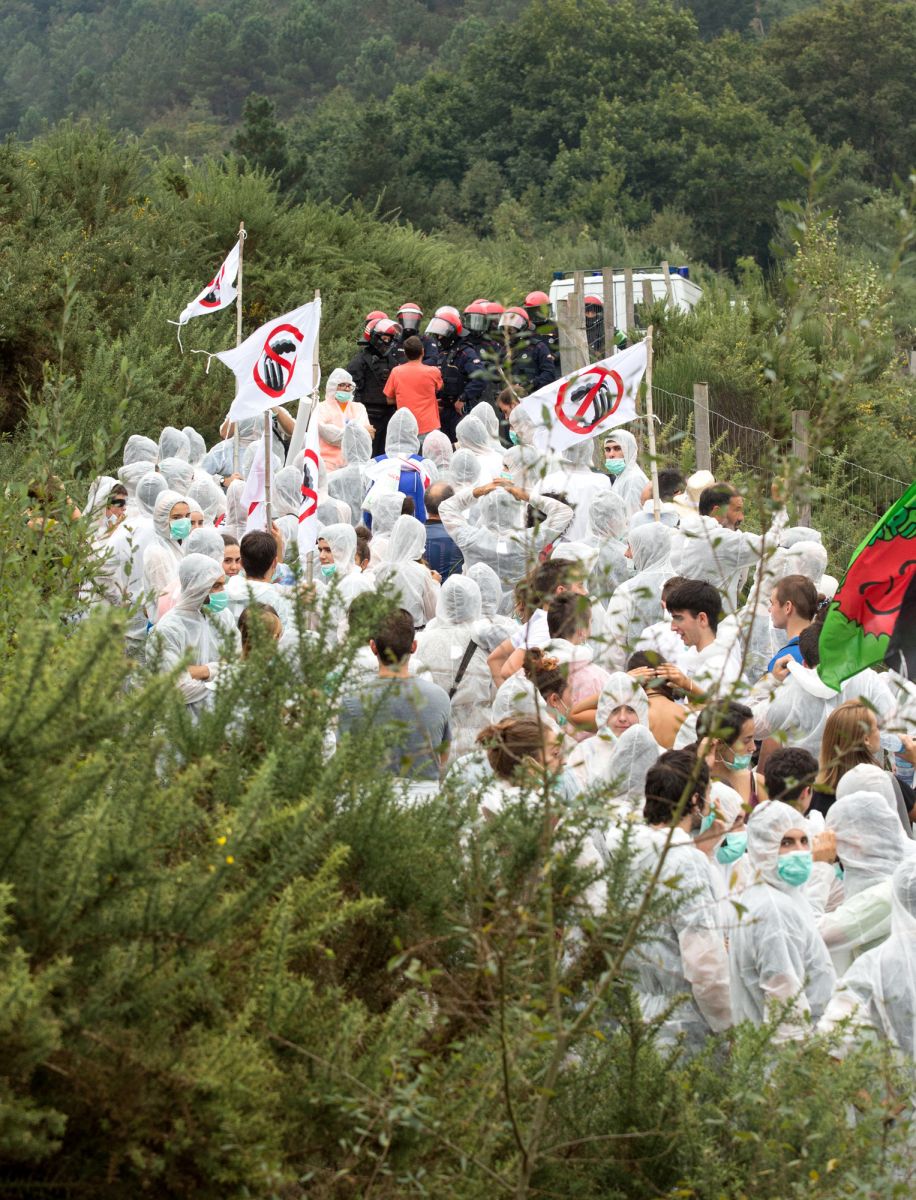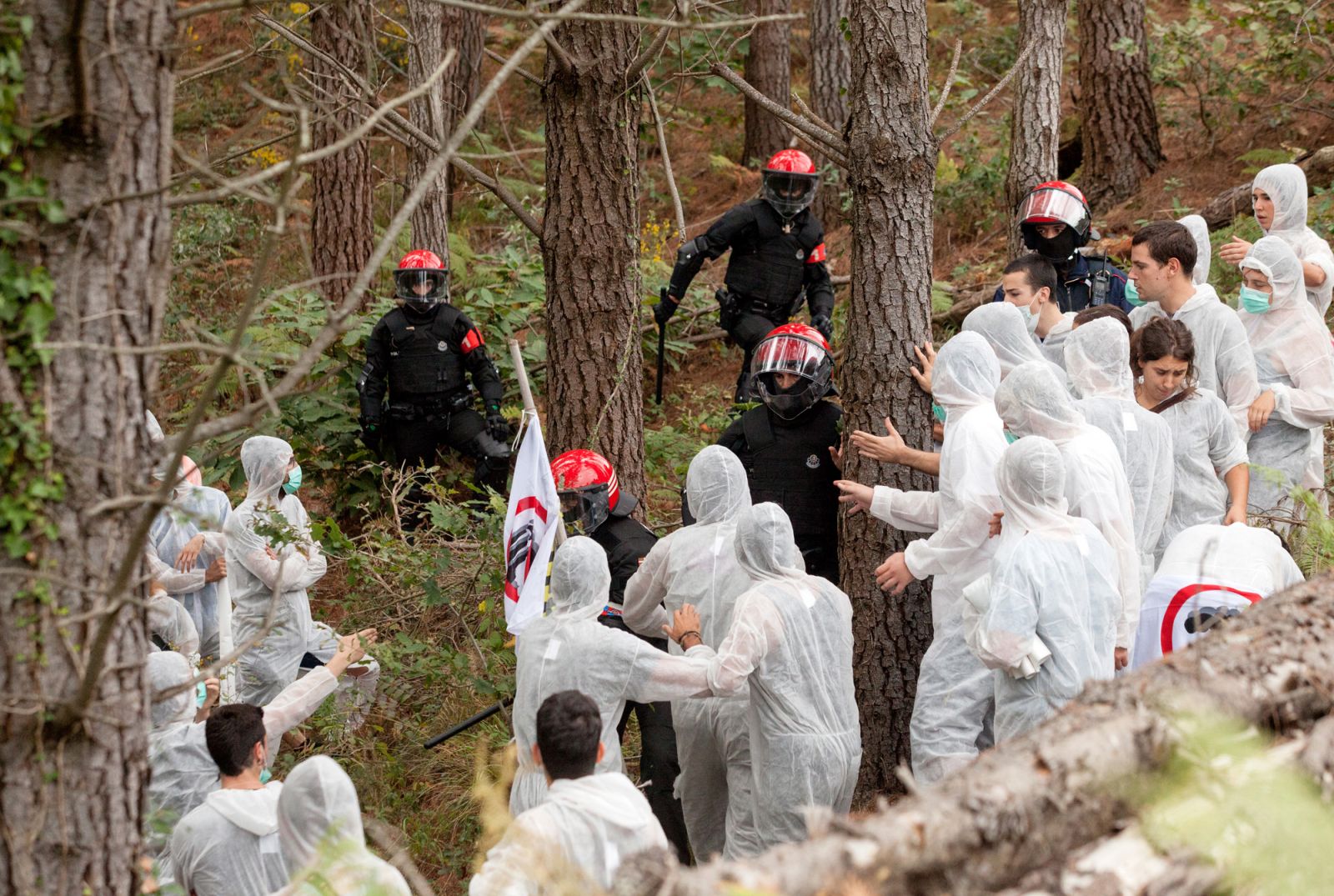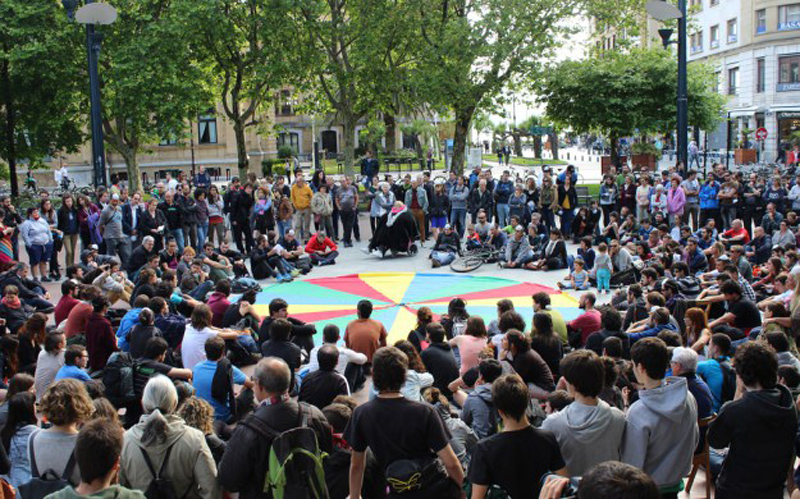Multitudinous march against an incineration plant in San Sebastian attacked by the police
On Sunday the Basque police stopped and attacked a multitudinous peaceful march against the incineration plant which is being built in San Sebastian, Basque Country.

A “Small Revolution’s Camp” (“Iraultza Txikien Akanpada” in Basque) was held Zubieta from September 21st to 23rd. It lasted three days and was designed to be “the meeting point between the citizens and the popular movements who dream ofa different Basque Country”. At the end hundreds of people, children and retired peopleamong them, went on a peaceful march tothe nearby incinerating plant in opposition to the project.
People split into two columns and when they reached the area where the building is going up they saw that the police was there in force, including a helicopter. The Ertzaintza (Basque police) blocked the marchers’ way and confronted them, injuring some of them. Tense moments took place when the police charged against one of the columns.
Citizens replied to police officers’ punches with openhands; most of the injuries werethe result of truncheon blows on necks, backs and arms. People pushed into the undergrowth were injured too.



The Basque police’s actions, however, did not soften people’s accusations. “We have managed to bring to light the violence they use”, they explained when they returned to the square in Zubieta.
A project which has created confrontation
The Gipuzkoa incineration plant project has met with protests and considerable opposition. Thousands of people have come together in protest, camping out and carrying out other activities over recent years, and there is a sizeable popular movement.
The project has had its ups and downs. The previous government of Gipuzkoa stopped the construction of the incineration plant, but the current government – led by Markel Olano (EAJ nationalist party)– has started work on the plant again and taken the people who stopped work on it to court.


In fact, at Zubieta’s Small Revolution’s Camp members of the movement against the incineration plants wanted to makea statement to the people who had stopped work on the incineration plant during their 2011-2015 period of office, and to the people who had put door to door rubbish collection into practice.
On be half of the members of the previous government Ainhoa Intxaurrandieta spoke to the people and Zubieta and residents of Gipuzkoa, uring them to stop arguing and asking them to continue with the objective of stopping the incineration plant: “Let’s fight, for us and for our descendants, for those kids we see there over there”.
This article was translated by 11itzulpen; you can see the original in Basque here.
ARGIA is a news media funded in 1919 in Pamplona and published in Basque language. At first religious – called Zeruko Argia, "light of heaven” –, forbidden during the fascist dictatorship in Spain from 1936 on, in the 1950s and 1960s it had managed to come... [+]
In this series of articles, it should now have become clear that venture capital has created a system in which two types of companies become global giants: companies with bad business models but good marketing, or good business models and horrible impacts on society. This... [+]
One of the confusing aspects of the tech industry is that from a distance all the companies can seem the same. They use apps, have similar design styles, are based in hip urban centers, and strangely have millions of dollars without making any money. In part, this series is... [+]
After publishing Glovolizacion, a three-month undercover investigation into the working conditions of Glovo riders, I received almost entirely positive feedback from the general public and riders alike. Most riders felt ignored and exploited, and most readers were interested in... [+]
This is the third in a four-part investigative series examining Glovo’s business model and its relationship with the world it operates. Based on public statements by Glovo’s founders, this article will contextualize their world-view and the changes they hope to... [+]
Almost all of the negative public attention that has recently been plaguing Glovo has been focused on the exploitation of their riders. This a welcome change of perspective but it also leaves out a significant part of the story: the restaurants that “collaborate”... [+]
This is the first in a four-part series that will examine Glovo’s business model and its relationships with the world in which it operates. Based in extensive research into the company’s public image and dozens of interviews with Glovo “riders” in my... [+]
If anyone is likely to have a gun at any time, society and daily life feel the consequences. Police shot first and ask questions later, and the possibility of being shot for absolutely no reason becomes a practical reality of going to work, going out with friends, and simply... [+]
In my Larrun article Glovalization, I attempted to call attention to the way that Glovo tries to pit its employees – oops, contract laborers – against each other in a zero-sum competion and a game-like application, and I predicted that this type of ingrained... [+]
Back when Glovo was a small company that no one had heard of in a few major Spanish cities, one of its first riders, Isaac Cuende, was hit by a car during a delivery. According to his account of the incident, the first question the company asked him was “are you carrying... [+]
Two major events have rocked the USA in recent weeks. First, the arrest in London of Julian Assange for allegedly helping Chelsea Manning in an effort to crack a government password . Second is the final, albeit redacted, Muller report, a long-awaited legal reckoning of... [+]
The other day, standing in a bar looking at a photo of the Notre Dame cathedral in flames on the front page of the newspaper, I had to stop myself from laughing with joy. Unlike most, I see the cathedral as a monument to the many crimes of the Catholic Church: organized sexual... [+]
Since its founding in 2015, Glovo has been expanding across the Iberian Peninsula and the world so quickly that we have not had the time to appropriately react and evaluate its impacts on our lives. The company uses a business model and marketing strategy that were first... [+]
Environmentalist Gladys Del Estal was killed by a member of the Civil Guard at an anti-nuclear festival in 1979. The officer was sentenced to 18 months in prison, but shortly afterwards before serving his sentence he was awarded a medal. Del Estal has become a symbol of... [+]
Errigora has started its annual campaign in favour of producing food and consuming it in the Basque Country under the slogan "Five years feeding what we love". Five years have gone by since they started the initiative. They use part of the profits which they make from... [+]





















